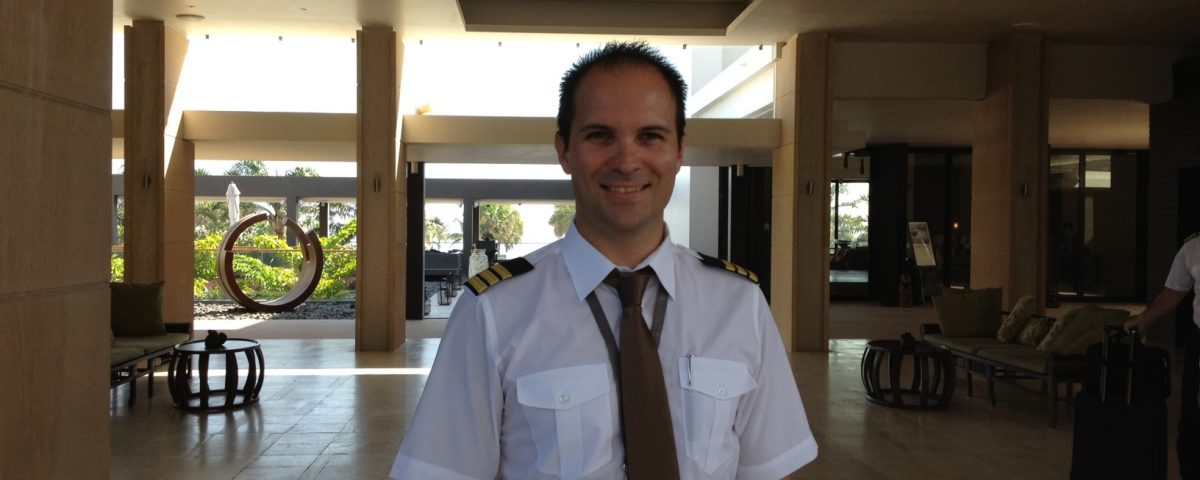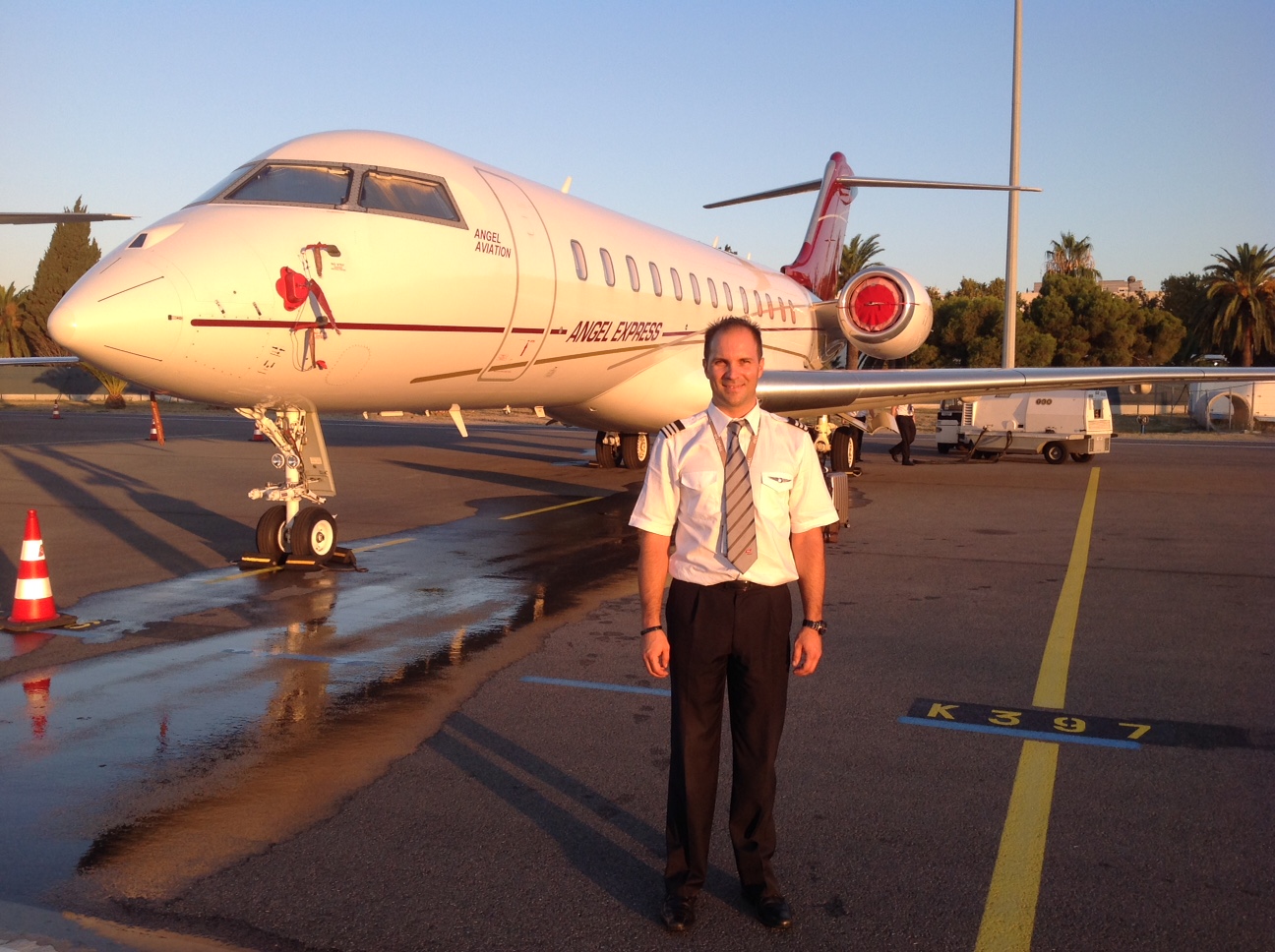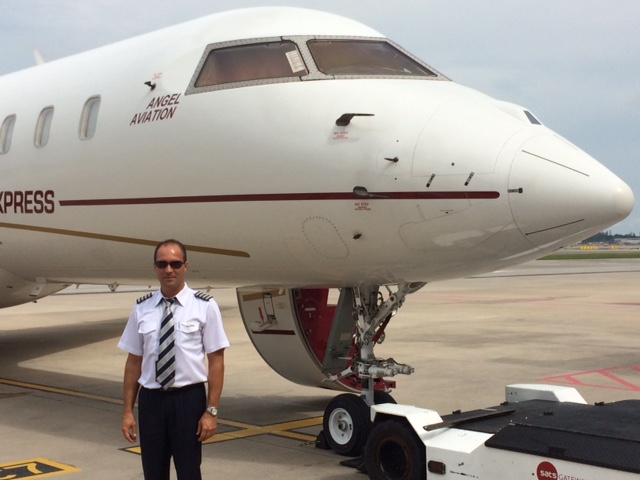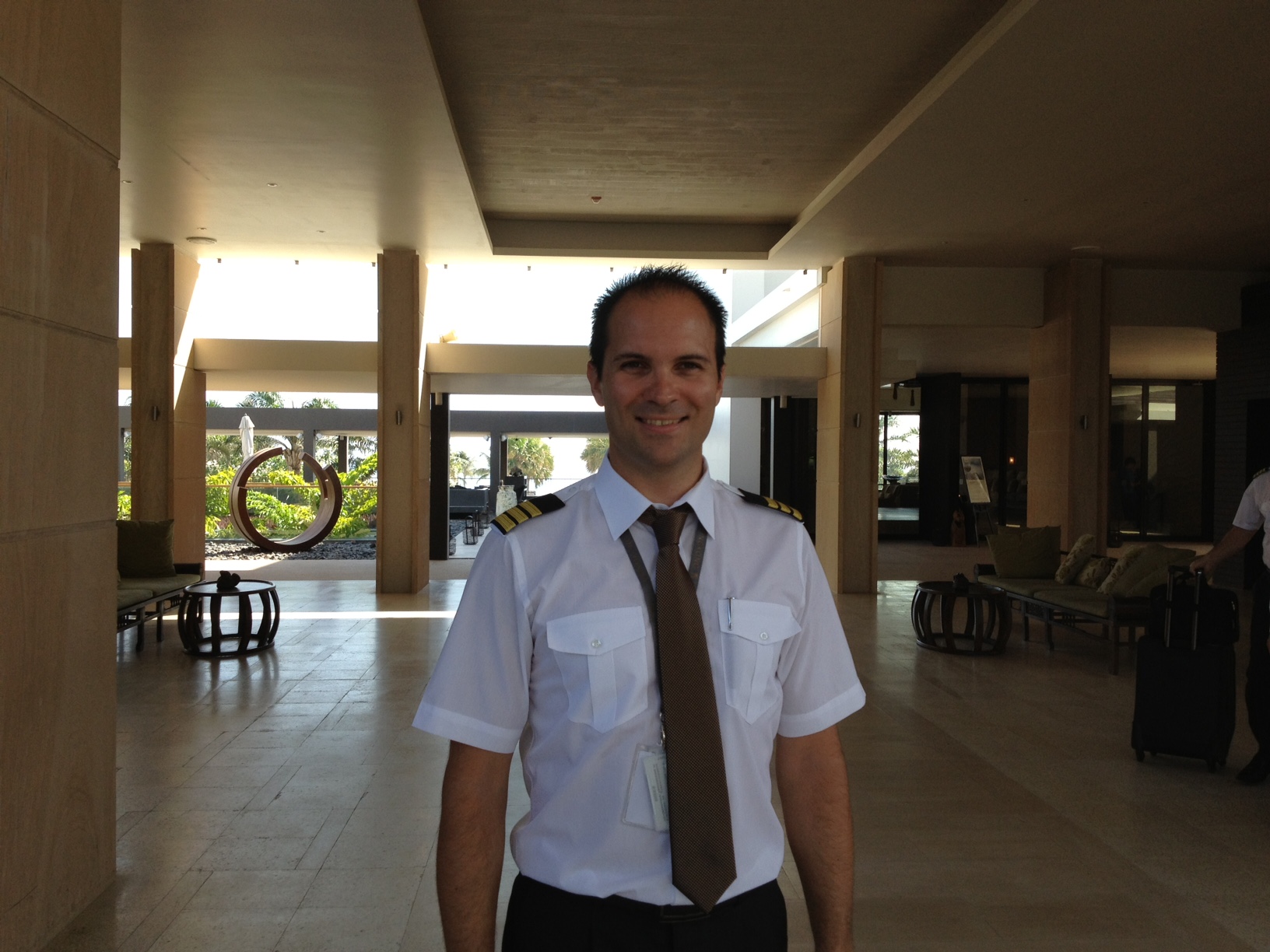Flying to Success – Interview with pilot Thomas Irbinger
Flying to Success – Interview with pilot Thomas Irbinger

Captain Global Express TAG Aviation Asia - April 2016 - Present
Pilot TAG Asia, Fleet Technical Pilot – TAG Aviation Asia – August 2013 – April 2016
Jet Partner for Private Aircraft Services & Charter Flights
First Officer – Hong Kong Jet – Mai 2013 – August 2013
First Officer Global 5000 GVFD
First Officer – Tyrolean JetServices – November 2005 – März 2012 – Innsbruck (Austria)
First Officer on J328, Global Express.
- Please tell me about yourself and your career
I was born in Vienna, Austria, I have 2 brothers and one sister.
My father travelled a lot around the world due to his diplomatic career, therefore, we moved many times. I was always fascinated by engineering and all sorts of complex machines. That what attracted me into aviation.
I learnt how to fly in Graz (Austria), then went to Fort Worth (Texas) to obtain most of my flight experience and licences.
My first job was with Tyrolean Jet Services in Innsbruck, where I flew the Dornier 328 Jet and later the Global Express. After 7 years, I decided it was time for a change of surroundings and found a Job with TAG Aviation Asia, based in Hong Kong.
- Can you share an experience or specific moment that made you lose/gain confidence in becoming a pilot?
The most important thing is to remain optimistic. Keep your knowledge and skills sharp, and hope for better times and motivate yourself to fight for your dream. Losing my confidence happened a few times, especially when I finished my training and started looking for a job in 2002. Those were bad times for aviation and finding any position or any other job proved to be difficult.
- In what areas do you think nowadays schools/universities around the world could improve when teaching students on how to study more effectively when compared to the training course of a pilot? What advice would you give them?
Some old school systems just have a program and timeline by which they stick to too much. I always thought, wouldn’t t it be more useful to take a perfect exam and just share it with the whole class? At university or Flight School everyone is there because it was their own wish, after all. The use of audio -visual learning with short in-between adaptive tests would strengthen the short-term memory. This would help students making correlations easier and support containing complex information longer.
You have to be able to motivate students, but the basic push must come from themselves.
The students should be pushed harder to get it right the second time. It is imperative to learn from a mistake the first time.
This system would only work out if correction of an exam happens with all students paticipating until everyone knows how to avoid the mistakes with certainty next time.
When a student does not dominate a procedure perfectly or an essential element of safety, then the instructors would repeat the training and intensify the pressure until it has been understood or completed his/her satisfaction
- What guidelines would you give teachers and coaches to help building student´s skills on result-oriented working?
Everyone has different apprehension, memory, speeds and aptitudes. Those need to be analysed first, so each individual can find his best technique of learning. Next time the result should have improved noticeably.
At the end it can be valuable to look into a project in retrospective and see what information was lacking, or what could have been presented better, or what would have been important to know before commencing a project.
We have to first start learning how to learn on a case-by-case scenarios.
- Many people are struggling with concentration and focus. Could you share with pupils, students, and young professionals a few techniques that also pilots use in their training to enhance their performance?
Pilot`s motor skills are well trained, but nobody was born a perfect human.
With the right motivation and practice a person is able improve almost any kind of skill. At the end, don´t forget not to overwork yourself. Stress is detrimental for any physical or mental capability, for instance, jet-lag…
The brain is only as capable as the body supporting it. Keeping in shape, fit, eating and sleeping right does a lot for the first instance.
- What would you say are success factors and personality traits a person should possess or develop in order to become a person that is capable of taking responsible for other peoples lives?
In a critical situation you will be sometimes required to jump into another role, giving strict and direct orders. Making yourself understood by any means will be asked of you. Anything can happen anytime, that´s what you are here for and should be prepared for. Only then you will feel your authority to be accepted and accustomed to.
Responsibility is not always felt by the people you are in charge of. Just do your job right. All aircrafts fly in a similar way, what happens behind you on board should not influence the way you think or act in the cockpit.
Good leadership, communication skills, leading by example, motivating your team, so to get the most out of everyone to perform at his absolute best, are must-haves. Dealing with difficult situations that require important decision-making skills are among those critical skills as well.
- How do you define success?
Having a happy and fulfilling life, where you feel useful and loved
Making your dream come true.
- What personal life principles made you become successful?
Perseverance, motivation, staying fit, happiness, work hard, studying, studying, studying.
- What advice would you give to students and young adults in order for them to achieve what they want?
Study, work hard, make connections, be a role model, have a lot of patience, make some alternative plans interim, and enjoy life.
You have to build up a knowledge network around you and the area of interest.
Thank you very much for the interview, Thomas.
Interview conducted by Nicholas Sebastian Chan 2017
Book Recommendations:
Beyond the Checkride: Flight Basics Your Instructor Never Taught You - Howard Fried




